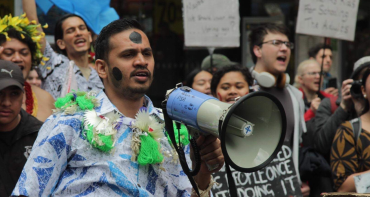Delegates from small states have praised The Commonwealth for providing practical solutions to the challenges they face delivering access to justice for their citizens.

Delegates from small states have praised The Commonwealth for providing practical solutions to the challenges they face delivering access to justice for their citizens. Law ministers and Attorneys-General met last week to discuss challenges faced by small jurisdictions and to share solutions.
Issues discussed included the large backlogs in criminal cases, the protection of witnesses in serious criminal cases, women's access to justice, sustainable law revision, the use of technology in court, and the impact of the internet and social networks on freedom of expression.
Over 30 delegates from Africa, Asia, the Caribbean, Europe and the Pacific attended the Meeting of Law Ministers and Attorneys-General of Small Commonwealth Jurisdictions at the Commonwealth Secretariat in London from 11 to 13 September.
Small jurisdictions often have to cope with particular challenges posed by their small population, remoteness and resource constraints.
Tsokolo Makhethe, Attorney-General of Lesotho said: "I find The Commonwealth unique in the sense that it really deals with matters that, back home in our capitals, we confront almost daily. These are very practical, down-to-earth matters that we are experiencing in the process of administering justice."
He explained that Lesotho had been facing a challenge with a backlog of criminal cases which had led to an outcry from the populace. He said: "At this meeting we have heard how other members have dealt with this problem, and we are even going home with a template of some recommendations based on findings by the Commonwealth Secretariat on this issue. That's very exciting."
Owen Bonnici, Junior Minister of Justice for Malta, said that his country, like other small states, was facing challenges related to the length of time cases take to reach a decision.
Mr Bonnici said that, in addition to lessons learned from discussions on the issue, the meeting also presented him with an opportunity to request an expert’s presence in Malta to undertake an assessment of the problem.
At the meeting, attendees were presented with a report on The Commonwealth's work with small states in the justice sector. Senator Mark Golding, Minister of Justice for Jamaica, said: "Unlike some of our international partners, The Commonwealth does not come to us with a lot of baggage nor does it try to impose things on us. It is respectful, supportive and works with us in a non-bureaucratic way."
Neil Adsett, Attorney-General for Tonga and Chair of the meeting, noted that many other international organisations offered aid but had little understanding of the problems small states face.
He said The Commonwealth was different because its small jurisdictions have similar laws, histories and challenges, allowing for an understanding of their needs and practical assistance in a low-key way.
In his remarks to delegates Commonwealth Secretary-General Kamalesh Sharma said The Commonwealth has a collective commitment to addressing the needs of small states and that this is recognised in the Commonwealth’s Charter.
He said: "The Commonwealth Secretariat, and The Commonwealth family more widely, are committed to offering assistance in overcoming these challenges, which in legal affairs often stem from a lack of capacity and limited resources."
The meeting of Law Ministers and Attorneys-General of Small Commonwealth Jurisdictions takes place every three years to address the current challenges being faced in delivering access to justice to the populations of small jurisdictions.
In its law and justice work with small states, The Commonwealth offers varied assistance and advice, from training and mentorship for justice sector officials, to the development of model laws and best practice guides. Commonwealth small states have also benefited from support with legal research in emerging areas, facilitation of country-to-country collaboration through the use of pro bono mentoring and placements and facilitation and support for regional networks of justice sector officers, such as prosecutors, to enhance skills and promote co-operation. The Commonwealth Secretariat has also developed and delivered work programmes of a more general nature in areas such as international co-operation, anti-corruption, anti-money laundering, counterterrorism and cybercrime, with a focus on specific challenges faced by small jurisdictions.
It has supported small states with programmes in the use of technology in courtrooms, alternative sentencing measures to prevent prison overcrowding, promotion of women’s land rights and addressing violence against women.



